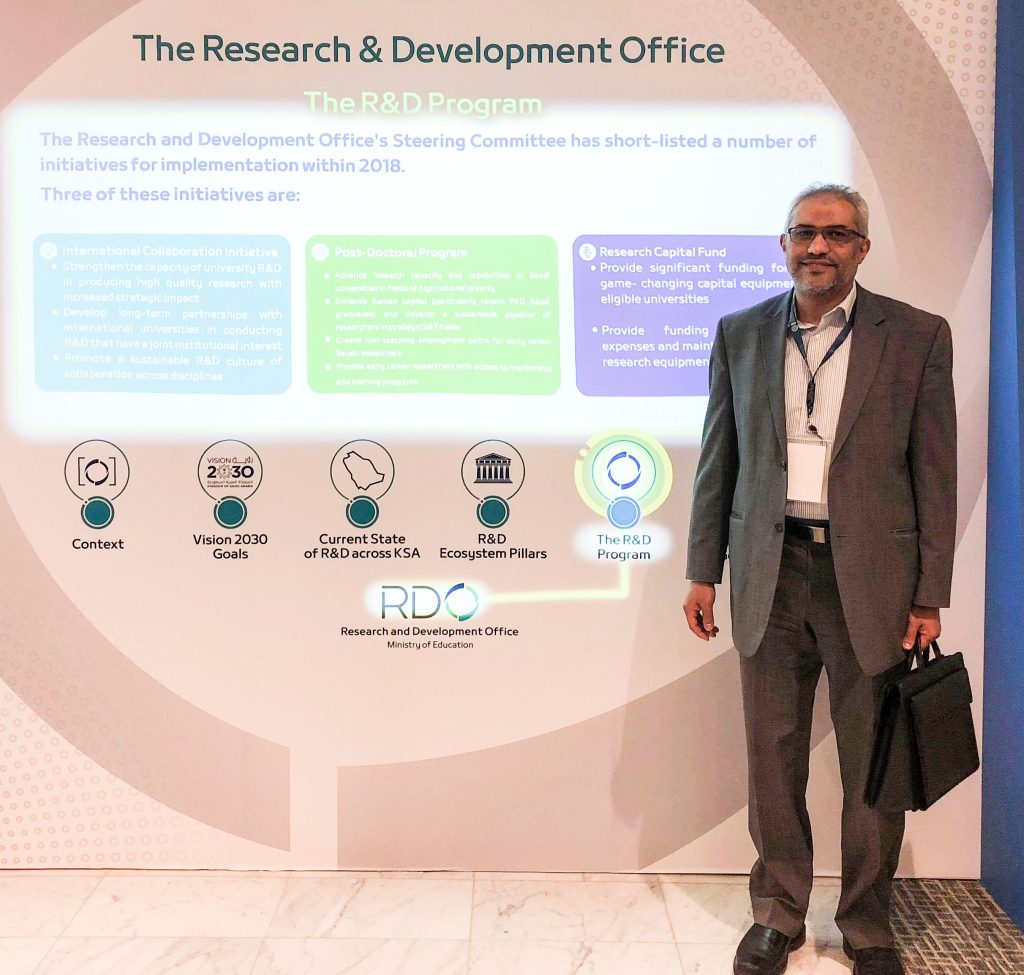
Professor Amer Shalaby was in Riyadh, Saudi Arabia last week as an invited guest participant at the Kingdom of Saudi Arabia’s 1st International R&D Collaboration Conference. He was the lead facilitator of the “crowd management” research theme and workshop, and he coordinated the development of a framework for the research program on crowd management in large scale events, with special focus on the Hajj event in Makkah.
Professor Shalaby’s work in the area of crowd management spans the modelling and control of crowd flows in various environments – including multi-modal hubs and large-scale events – and specifically, the Hajj in Makkah.
Professor Shalaby notes that “one of the exciting outcomes of this conference is the inclusion of crowd management in the set of ‘grand research challenges’ of Saudi Arabia, expressed as: Develop real-time simulation and monitoring for massive crowd movement with early warning capability.”

The goal of the conference is to build international research collaborations between Saudi universities and leading international universities in priority research fields for the Kingdom of Saudi Arabia. It also aimed to provide attendees with an understanding of the research currently undertaken in the Kingdom and the local R&D demands from an industry point of view.
The conference is a precursor to a new research funding program created to foster collaboration between Saudi and international researchers in a number of strategic scientific fields.
